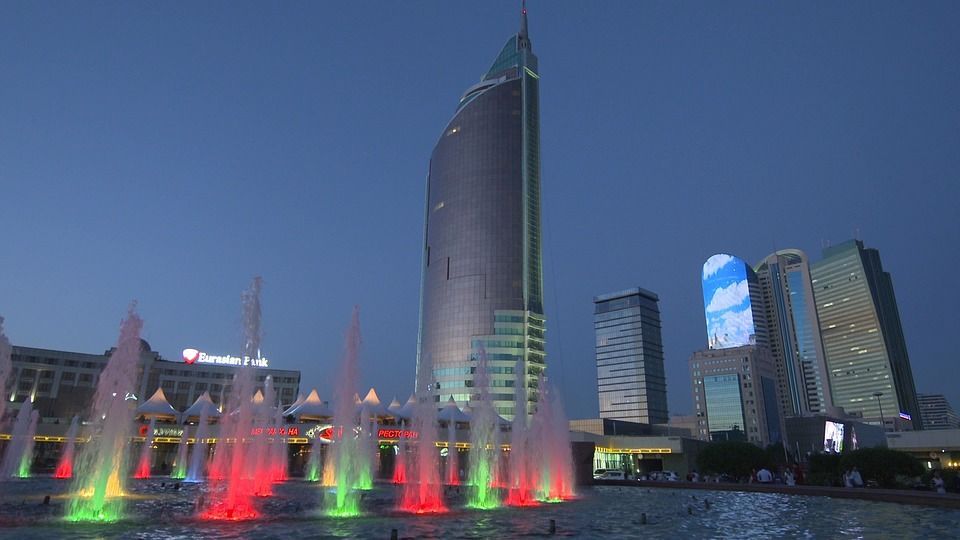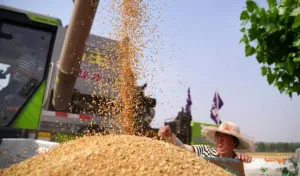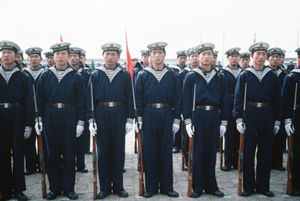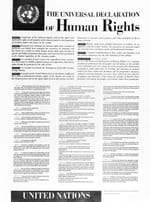[Versión española]
After following the events in Kazakhstan for almost five months, starting with the analysis we offered in translation on 19 January 2022, we have arrived at the result of the referendum held in the Central Asian country last Sunday, and which led Kazakh President Kassym-Khomart Tokayev on Monday 6 June 2022 to pledge to fulfil his plans to push forward democratic reforms in Kazakhstan, after a clear majority of voters approved the constitutional amendments he had put forward in a referendum.
The referendum proposed to Kazakhs sanctions changes to the Central Asian country's constitution that would, among other things, limit presidential powers and expand parliamentary powers.
According to the Central Election Commission, turnout was 68.06%, and 77.18% of the votes cast on Sunday were in favour of amendments that decentralise decision-making and strip former strongman Nursultan Nazarbayev of his status as "national leader".
The former president, who had already been ousted during the January riots even as head of the National Security Council, is thus definitively leaving the scene and the architecture of his power is being reconfigured according to the new needs and interests of the clans.
"We must review the legislation that allowed a small group of people to concentrate the country's economic resources in their hands and enjoy preferential status," said Kassym Khomart Tokayev.
We have to recall that Kazakhstan has long enjoyed enormous political stability, which has meant that Western investors have moved hundreds of billions of dollars of capital into Kazakhstan's energy and mining industries. And then, in January 2022, this Russian ally experienced deadly civil unrest, including an attempted coup by security officials.
So we can say that this recent referendum is framed in part as a response to those riots, which began as a protest against a fuel price hike but grew into a broad show of discontent by citizens who have been increasingly vocal in calling for change to an elitist political system. A message that would have been received by Tokayev, which is why, to some extent, he is trying to position himself by using this referendum as a man trying to introduce reforms.
Tokayev, who has also called for higher taxes on extractive industries and high-income earners, proposed the reforms after quelling the coup attempt and removing the former "patriarch" Nazarbayev and his entourage from important public sector positions.
Nazarbayev led the country for three decades before stepping down in 2019 and electing Tokayev as his successor.
Securing domestic support will also help Tokayev, a 69-year-old career diplomat, navigate the Ukrainian crisis that has destabilised Kazakhstan's economy and placed him in a difficult political position. Tokayev has an excellent command of English and Mandarin, in addition to, of course, Russian and Kazakh, during his long political/diplomatic career he has also served as foreign minister and in 2011 was appointed director general of the UN office in Geneva and, at the same time, UN deputy secretary general.
While many Kazakhs have welcomed Tokayev's rise to power, some have criticised his decision to seek help from a Russian-led security bloc (CSTO) to quell unrest in January, putting the Kazakh leadership in Russia's debt, in the eyes of many, weeks before it invaded Ukraine.
Western sanctions against Russia have also affected Kazakhstan. Its currency, the tenge, plummeted almost as much as the rouble in March before recovering, and logistics have become much more difficult for Kazakh companies dealing with European counterparts. Tokayev has been very circumspect in commenting on the Ukrainian crisis, although he has urged all sides to act in accordance with the UN charter.
In terms of food security, there have also been consequences that Tokayev has had to deal with. Thus, as we explained in this piece of analysis:
Because of the doubts raised and these decisions taken by the Russian Federation, Kazakhstan imposed temporary quotas on wheat and wheat flour exports from 15 April 2022 until at least 15 June 2022, limiting exports of wheat grain to 1 million tonnes and wheat flour to 300,000 tonnes. According to agriculture minister Yerbol Karashukev, it was specified that during this period, local grain exporters will be able to export 1 million tonnes of grain from Kazakhstan, provided they contribute 10 per cent of this volume to Kazakhstan's state grain regulator, AO Food Contract Corporation (FCC).
According to Farangis Najibullah, the ban meant that Kazakhstan lost access to Russian wheat, of which it happens to be the largest importer in the EAEU. As a result, the Central Asian country's flour mills were left without supplies and at risk of bankruptcy. Grain from Kazakhstan turns out to be more expensive in its final price than grain imported from the Russian Federation, which means that trade costs, already high and tending to rise further because Ukraine is also a major exporter of wheat and other grains, such as maize.
Kazakhstan is a major global grain supplier, and happens to be the cornerstone on which the food security of its Central Asian neighbours can be built. Moreover, it also affects the South Caucasus, especially Georgia, as can be seen here. According to the International Grains Council (ICG), in the 2020-2021 season, Kazakhstan exported 7.3 metric tons or tonnes of wheat. In 2020, wheat accounted for more than a quarter of all exports from Kazakhstan to Uzbekistan. If we look at Tajikistan, Kazakh wheat turns out to be practically vital because wheat accounted for more than 33 per cent of all Kazakhstan's exports to Tajikistan in 2020, but no less than 96 per cent of all wheat imported by Tajikistan came from Kazakhstan, as can be seen here. Tajikistan's Ministry of Agriculture has explained that the country's wheat demand exceeded 2 million tonnes, with some 864,000 tonnes of wheat being grown in the country in 2021, and the rest of the demand to be covered by imports.
What seems a priori not to be radically altered has to do with the strategic horizon of the most important Central Asian country in terms of geopolitical importance and has to do with the former president's circular vision. That is, what made Kazakhstan an attractive regional actor by carefully calculating the interests of various local groups and those of the major international powers through a policy of balance that has catered for two decades to the wishes of Moscow, Beijing and even Washington (and other actors, such as the European Union or Turkey), with US companies dominating the Kazakh oil industry.
Interestingly, this referendum practically coincides with the third anniversary of the victory in the presidential elections of 9 June 2019, which marked a historic milestone for Kazakhstan, as for the first time in decades Nursultan Nazarbayev, who had been acting president since 20 March 2019, following the resignation of his predecessor, did not win. However, as we have already said, Nazarbayev retained control of the Nur Otan party (Kazakh: Нұр Отан, which literally means 'Radiant Homeland'), a movement to which Tokayev himself belongs, and the presidency for life of the National Security Council.
Indeed, as evidence of a mood that was spreading across the country, on 23 November 2021, the spokesman for the 'patriarch' Nursultan Nazarbayev, Aidos Ukibai, announced that the former president would hand over the powers of the Nur Otan party chairman to its current chairman, Kassym-Jomart Tokayev. To understand the impact of Nazarbayev and his rule it is enough to note that 52% of Kazakhstan's approximately 18 million citizens were born after he came to power.
On 28 January 2022, following political unrest on 2 January, current President Tokayev removed Nazarbayev from the post of Nur Otan chairman and took control himself. Meanwhile, on 1 March 2022, during an extraordinary meeting of Nur Otan, a motion was tabled to change the party's name to "Amanat" (in Kazakh Аманат, which can be translated as 'Ancestral Will'). This motion received support and was approved by the party's president and chairman, Kassym-Jomart Tokayev, stating that "[changing] the party's name is not just about changing its name and changing a label, we must also reform the work of the entire party."
As an example of what Kazakhstan and its foreign policy mean, the Nur Otan party has signed and renewed cooperation agreements with United Russia, the party with the parliamentary majority, the latest of which was in the 2021 Russian parliamentary elections, which we discussed in this piece of analysis; with the Communist Party of China; with the AKP or Justice and Development Party of Turkey, the party of the current president of the Republic of Turkey; with the Party of Regions (in Ukrainian Партія регіонів, in Russian Партия регионов), i.e. the pro-Russian party in Ukraine formed in late 1997 that later became the largest party in Ukraine between 2006 and 2014, at which time the party has not contested elections and members have slowly dispersed, and the best known former party members are former Prime Minister Mykola Azarov and former Ukrainian President Viktor Yanukovych: both fled to Russia in February 2014 after Euromaidan; and with the People's Democratic Party of Tajikistan, in Tajik Ҳизби халқиии демократии Тоҷикикистон, and in Russian Народная демократическая партия Таджикикистана, which has been the dominant and ruling party in Tajikistan since 1994, when it was founded by Abdulmajid Dostiev; since April 1998, the party's leader has been the President of Tajikistan, Emomali Rahmon. In other words, Kazakhstan has a multilateral approach, with the goal of equidistance from the great powers, when we look at its relations with the European Union and the United States.
For geographical, historical, political and demographic reasons, Kazakhstan's special relationship is with Russia? but this scenario is beginning to show signs of change in favour of China, a trend that can be fully understood by looking at Central Asia as a whole, where China is beginning to see the "stan" countries of the region as a key part of its strategic security and an element that allows a connection to the Middle East and Europe/Mediterranean by land, as Afghanistan or Iran itself would demonstrate, and where the rules of cooperation are defined (at least for the moment) between Russia and China, or by the fact that Syria has signed the memorandum to be part of China's BRI.
Another aspect worth noting is the visit of Odile Renaud-Basso, president of the European Bank for Reconstruction and Development, to Kazakhstan. In this regard, President Renaud-Basso explained that the European Bank for Reconstruction and Development can provide assistance to Kazakhstan in order to increase the capital of the Central Asian subsidiary of the Russian bank Sberbank in Kazakhstan, provided that Kazakhstan acquires it. We have to considerer that Sberbank has been affected by Western sanctions, and Kazakhstan's state holding company Baiterek is in full talks with Sberbank, although it had no plans to participate in the possible initial sale of the Kazakh division to Kazakhstan. Majority state-owned Sberbank granted 150 billion roubles ($2.45 billion) in loans to its Kazakh subsidiary, as customers withdrew cash and exhausted liquidity, after Russia's war from 24 February 2022 brought sanctions on the lender.
Sources quoted by Reuters in May explain that Sberbank expected the buyer of the Kazakh subsidiary to ensure repayment of these loans, which are now worth much more than the Kazakh unit.
In turn, Odile Odile Renaud-Basso urged Kazakh officials, including President Kassym-Jomart Tokayev, to accelerate the adoption of a decarbonisation programme and launch 2 gigawatts of renewable energy capacity by the end of 2025, and to that end a memorandum was signed with state energy firm KazMunayGaz on plans to reduce the company's carbon footprint, including through carbon capture and hydrogen production projects.
Another project in which Kazakhstan invited the European Bank for Reconstruction and Development to participate is the expansion of the Dostyk railway crossing on its border with China, which Kazakhstan hopes will become part of a trans-Caspian shipping route bypassing Russia.
Conclusion
So first there was the crisis earlier this year with Russia's armed intervention through its CSTO instrument (could China define a different role for the Shanghai Cooperation Organisation and use it for its own purposes in the near future?), and then the war the Kremlin launched against Ukraine (I ask again the question regarding the Shanghai Cooperation Organisation). All these elements have their specific weight and open up scenarios, including energy security and Turkey's presence in the region as a third party in discord alongside Russia and China, which lead President Tokayev to make decisions over time regarding what kind of relationship he will have to maintain with Russia and China, given that Russia has no intention of renouncing Kazakhstan's economic-strategic importance and wants Beijing to let it have the upper hand on the issue of regional security; but China is getting what it wants from Russia. ... and is very concerned about the fate of the war, about how its Russian ally will come out of it, and about keeping Central Asian countries as far away as possible from what is happening in Kiev... and it now has more and more arguments of all kinds to get Moscow under its thumb, and to climb over the Kremlin to see how best to play the game with the expanded West and other actors.
Be that as it may, there is one element that Beijing has already made clear, and it has done so through a more than authoritative voice: Chinese Foreign Minister Wang Yi assured his Kazakh counterpart that Beijing will in no way allow the country's stability to be compromised by external forces or a coloured revolution. Seeing how China is acting, as I explained yesterday in a piece of analysis, this is something that has to be taken very seriously, because it is no longer rhetoric, and Beijing already has the means and the situation at the point it needs to achieve it.





